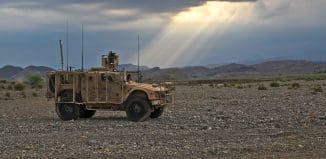The New Research Assistant: UAV To Take Gas Samples
This post is also available in:  עברית (Hebrew)
עברית (Hebrew)
Since 1950 there has been a significant rise in greenhouse gas (Methane, Co2 and mostly Carbon Dioxide) in the atmosphere, influenced by accelerated industrial development, burning of fossil fuel and deforestation. Methane is used to energy but is also one of the maine causes for global warming, so it is crucial to be familiar with the processes of producing it.
Researchers from Britan have recently returned from the british isle of Ascension in the middle of the Atlantic Ocean, after helping to redesign the payload for the Octocopter UAV. The pay load was remade as to have a way to determine different kinds of gas, Methane and Carbon Dioxide utilizing a singular pressurised system.
Dr Rick Thomas and Dr Colin Greatwood, both researchers from Britain, labored collectively to design the system for sampling gases. Another researcher in the field has mentioned that the useful information produced over the past six months would be relevant to other fields as well, from environmental sensing via to disaster monitoring. So a UAV could be operated in ash-sampling missions and help in predicting a volcanic eruption.
Professor Euan Nisbet from College of London, noted that “Air from tropical Africa and tropical South America passes over the island at altitudes above 1.5 km. By sampling this air with drones that may fly up into the tropical air plenty, we will research the methane sources of a really large area in Africa and South America. By analysing the carbon 13 within the methane, we will perceive the place the methane is coming from. That is serving to us to know why the emissions are growing.”
It seems that UAVs have an important new role. Science will surely benefit by these robots leaving the laboratory. And who knows? Maybe these aerial vehicles will manage to find the solution to global warming and provide us with a greener future.






























